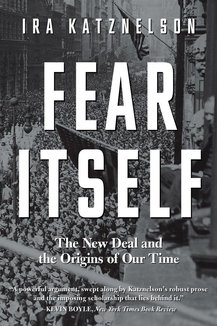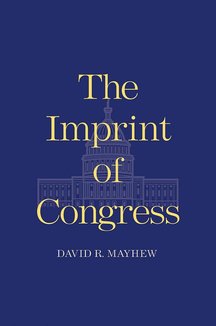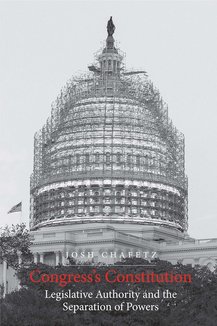Recommended Books

Fear Itself: The New Deal and the Origins of Our Time
Author:
Ira Katznelson
ISBN 13:
978-0871407382
“A powerful argument, swept along by Katznelson’s robust prose and the imposing scholarship that lies behind it.”―Kevin Boyle, New York Times Book Review A work that “deeply reconceptualizes the New Deal and raises countless provocative questions” (David Kennedy), Fear Itself changes the ground rules for our understanding of this pivotal era in American history. Ira Katznelson examines the New Deal through the lens of a pervasive, almost existential fear that gripped a world defined by the collapse of capitalism and the rise of competing dictatorships, as well as a fear created by the ruinous racial divisions in American society. Katznelson argues that American democracy was both saved and distorted by a Faustian collaboration that guarded racial segregation as it built a new national state to manage capitalism and assert global power. Fear Itself charts the creation of the modern American state and “how a belief in the common good gave way to a central government dominated by interest-group politics and obsessed with national security” (Louis Menand, The New Yorker ). 24 illustrations

The Imprint of Congress (The Henry L. Stimson Lectures Series)
Author:
David R. Mayhew
ISBN 13:
978-0300215700
What kind of job has America's routinely disparaged legislative body actually done? In The Imprint of Congress, the distinguished congressional scholar David R. Mayhew gives us an insightful historical analysis of the U.S. Congress’s performance from the late eighteenth century to today, exploring what its lasting imprint has been on American politics and society. Mayhew suggests that Congress has balanced the presidency in a surprising variety of ways, and in doing so, it has contributed to the legitimacy of a governing system faced by an often fractious public.

Congress's Constitution: Legislative Authority and the Separation of Powers
Author:
Josh Chafetz
ISBN 13:
978-0300197105
A leading scholar of Congress and the Constitution analyzes Congress’s surprisingly potent set of tools in the system of checks and balances. Congress is widely supposed to be the least effective branch of the federal government. But as Josh Chafetz shows in this boldly original analysis, Congress in fact has numerous powerful tools at its disposal in its conflicts with the other branches. These tools include the power of the purse, the contempt power, freedom of speech and debate, and more. Drawing extensively on the historical development of Anglo-American legislatures from the seventeenth century to the present, Chafetz concludes that these tools are all means by which Congress and its members battle for public support. When Congress uses them to engage successfully with the public, it increases its power vis-à-vis the other branches; when it does not, it loses power. This groundbreaking take on the separation of powers will be of interest to both legal scholars and political scientists.